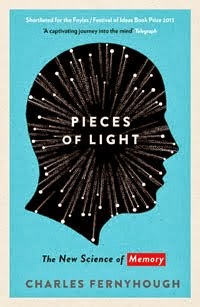
'Is playing with my train set using my brain?' Isaac asks.
I blame the video games for this current obsession. His activities now divide neatly into those that involve using your brain and those that don't. Colouring and looking at storybooks are good because they employ your grey matter; playing Mario and Sonic at the Olympic Games confers no such benefits. Ever since he discovered Athena's Nintendo DS (and refused to give it back), he has been a little too interested in things that beep, flash and emit electronic sighs of disappointment when you lose.
I haven't yet quizzed him on what he understands about the body's most complex organ. A landmark study by Carl Johnson used an innovative method to get at young children's understanding of how our identity as people is underpinned by our biology. He presented children with hypothetical situations involving transplants of different parts of the body. For example, children were asked to imagine that their own brain were removed and inserted into the body of a friendly pig, or that there were an exchange of brain, mouth or heart between themselves and a baby. Would children understand that removing a person's brain and putting it into the head of another would affect the identity of that person, while an equivalent transplant of another organ would not affect the consciousness of either party?
The results of this and other studies show that children's understanding of how mind is rooted in brain develops gradually over the early school years. Children of kindergarten age seem to understand that the brain is where thinking happens, and that without it consciousness would be impossible. It is a slightly different matter, and one that requires further developmental progress, to understand how the contents of our consciousness are 'contained' in the mental organ. Gail Gottfried and colleagues have argued that children's increasing acceptance of the 'brain-as-container' metaphor is at odds with their essentialism. This concept from philosophy, when applied to the development of children's knowledge, refers to the supposition that living creatures are what they are by virtue of some essential quality, such that a pig will remain fundamentally piggy no matter what modifications are made to its insides. Four-year-old Isaac might accept that his brain is what makes thinking possible, while insisting (because of his rampart essentialism) that he would stay the same person even if he were magically implanted with someone else's cortex.
The need to maintain the processing efficiency of the porridge between your ears is becoming more obviously acknowledged in children's culture. I've caught Athena watching a programme called Brain-Jitsu on CBBC, which sets its child contestants brain-training challenges based on elementary neuroscience. Some of the functional neuroanatomy is a bit simplistic—there is too much of that left-brain/right-brain twaddle that was so popular in the 1960s—but it surely can't be a bad thing that kids' interest in the science is getting this potential boost.
Anyway, they are now away at the brain gym to beat all others: school. Isaac was packed off to his first day at reception this week, with the promise that he would be doing lots of things that involved using his brain. Life at school will be like life at home when he's not using the Nintendo, only more so.
The end of the school holidays, and the prospect of weeks of undistracted work time, coincides with the news of two polls that show worrying levels of stress-related drinking among parents of young children, especially at the end of the school holidays. Now there's a news story that rings true.





Thanks, Bruce - looks interesting and I'll look out for it. I'll send you those papers as well.
ReplyDelete